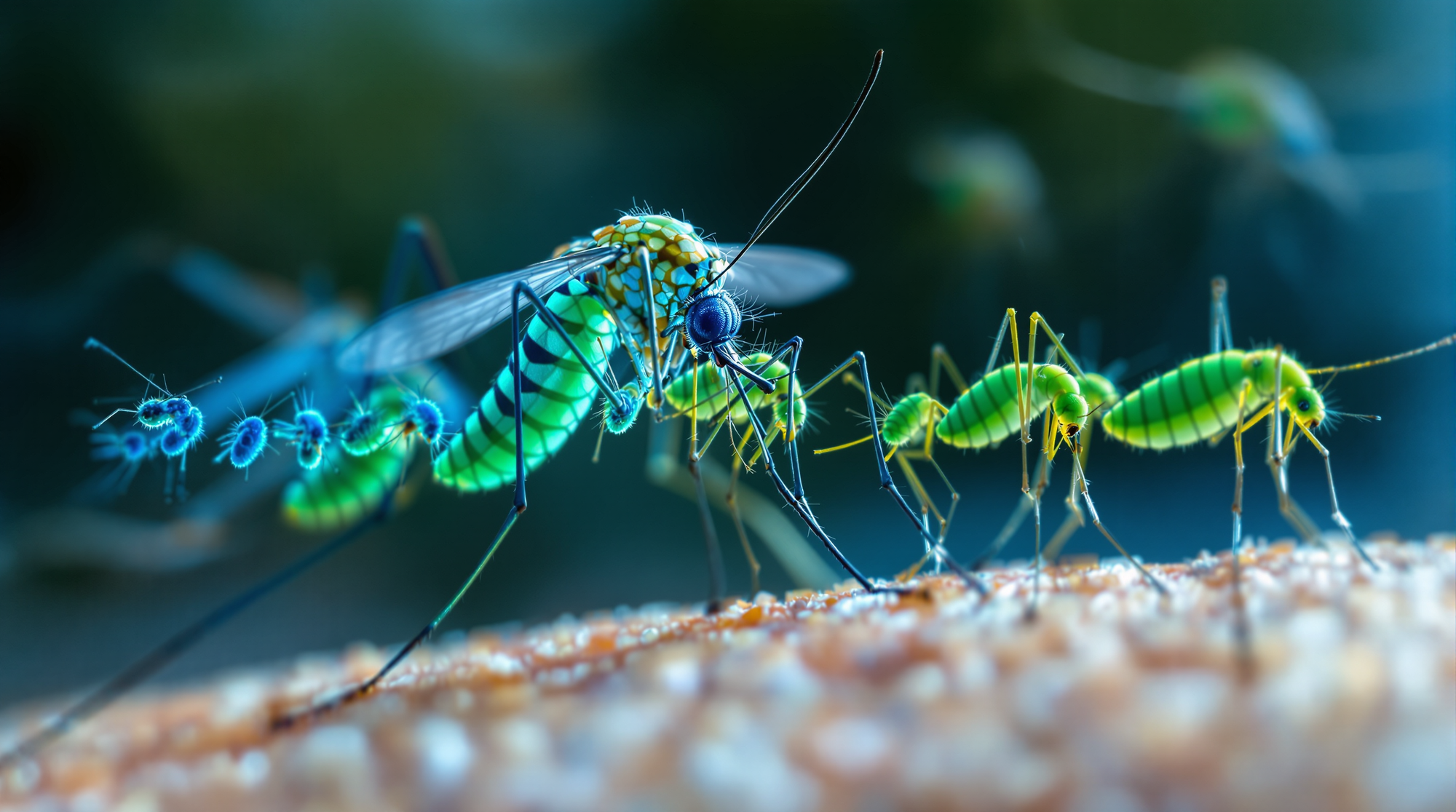After millennia of swatting, spraying, and suffering through mosquito bites, scientists may finally have the tools to eliminate these disease-carrying pests entirely. But as we stand on the brink of potentially unprecedented ecological intervention, we must ask ourselves: should we pull the trigger on the world's most dangerous animal?
The Science Behind Mosquito Extinction
Recent breakthroughs in genetic engineering, particularly CRISPR technology and gene drives, have given scientists the theoretical ability to eliminate entire mosquito populations. Gene drives work by ensuring that genetically modified traits spread rapidly through wild populations, potentially causing species collapse within just a few generations.

Oxitec, a British biotech company, has already released genetically modified Aedes aegypti mosquitoes in Florida and Brazil. These modified males carry a "kill switch" gene that causes their offspring to die before reaching maturity. While not designed for complete species elimination, such technology demonstrates the growing precision of our genetic intervention capabilities.
The numbers are staggering: mosquitoes kill approximately 1 million people annually through disease transmission, making them responsible for more human deaths than any other animal. They spread malaria, dengue fever, Zika virus, yellow fever, and West Nile virus across tropical and subtropical regions worldwide.
The Case for Elimination
Public Health Impact
Malaria alone affects over 240 million people annually, with children under five accounting for 80% of deaths. In sub-Saharan Africa, a child dies from malaria every two minutes. Eliminating the primary vectors—Anopheles mosquitoes—could save hundreds of thousands of lives yearly and reduce healthcare costs by billions of dollars.
The economic burden extends far beyond healthcare. Mosquito-borne diseases cost the global economy an estimated $8.9 billion annually in direct medical costs and lost productivity. Countries like Brazil face recurring public health emergencies during dengue and Zika outbreaks, straining resources and affecting tourism.
Targeted Approach
Scientists emphasize that elimination efforts would focus on specific species rather than all 3,500 mosquito species globally. Only about 40 species transmit diseases to humans, and targeting just the Aedes aegypti and Anopheles gambiae could dramatically reduce disease transmission while preserving ecological diversity.
The Environmental Concerns
Ecological Uncertainty
Despite their reputation as mere pests, mosquitoes occupy important ecological niches. They serve as pollinators for some plants, particularly in Arctic regions where they're among the few flying insects. Male mosquitoes feed exclusively on nectar, contributing to pollination networks that remain poorly understood.
Mosquito larvae also form crucial links in aquatic food webs, feeding fish, frogs, and other aquatic animals. In some ecosystems, they represent significant biomass, and their removal could trigger cascading effects throughout the food chain.
The Precautionary Principle
Ecological history is littered with well-intentioned interventions gone wrong. The introduction of cane toads in Australia and kudzu in the American South serve as reminders that ecosystem manipulation often produces unexpected consequences.
Dr. Sylvia Fallon of the Natural Resources Defense Council warns: "We simply don't know enough about mosquito ecology to predict the full consequences of their elimination. Once we release gene drives into wild populations, there may be no turning back."
Middle Ground Solutions
Rather than complete elimination, some scientists propose population suppression strategies. These approaches would dramatically reduce mosquito numbers without driving species to extinction, potentially achieving public health benefits while maintaining ecological safety nets.
Sterile insect techniques, enhanced surveillance systems, and improved medical treatments offer alternative paths forward. Cuba's success in controlling dengue through community-based mosquito management demonstrates that conventional approaches can achieve significant results.
The Verdict: Proceed with Caution
The technology to eliminate mosquitoes exists, but our understanding of the consequences remains incomplete. While the humanitarian case for action is compelling—particularly for communities devastated by mosquito-borne diseases—the irreversible nature of genetic intervention demands extraordinary caution.
The path forward likely involves:
- Continued research into mosquito ecology and ecosystem impacts
- Small-scale, reversible trials in controlled environments
- Enhanced investment in alternative disease control methods
- Inclusive global dialogue involving affected communities
As we stand at this crossroads, we must balance immediate human suffering against long-term ecological uncertainty. The power to reshape nature comes with profound responsibility—one that requires wisdom, humility, and unwavering commitment to both human welfare and environmental stewardship.
Target Audience: Science-interested general public, public health professionals, environmental enthusiasts, policy makers, ages 25-55, college-educated readers interested in biotechnology and global health issues.
